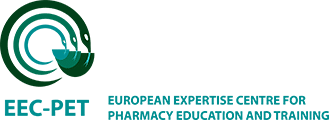In 2009 a survey of Pharmacy higher education was carried out by the PHARMINE project. All available country profiles can be found on this page.
Clicking the country’s name will open the profile in a new window.
Each country profile contains the following information:
- Organization of Pharmacy. This chapter describes the organization of the activities of pharmacists, and the professional bodies. It provides the background on the pharmaceutical situation on a national level.
- Pharmacy higher education. In this section information on higher education institutions, their status (public or private), and their organization, is collected. It contains information on staff and student numbers, entry requirements, fees, and past and future changes in pharmacy education and training the country. Information at both a national level and at the level of particular higher education institutions is given.
- Teaching and learning methods. In this section information on the hours in each year (lectures, tutorials, practicals, project work), traineeships and electives is given.
- Subject areas. In this section the total number of hours per year spent in each of the following subject areas is described: 1. chemical sciences, 2. physical sciences, 3. biological sciences, 4. pharmaceutical sciences, 5. medicinal and therapeutic sciences, 6. law and social sciences, 7. generic competences.
- Impact of Bologna principles. In this section it is described how the the Bologna declaration is expected to affect pharmacy education and training.
- Impact of EC directive. In this section the (expected) impact of the EU directive 2005/36/EC is described (on curriculum duration, curriculum content, and traineeship).
- Quality assurance. In this section information on the existence and the perception of institutional and/or national quality assurance systems is given.
The PHARMINE project was funded by the European Commission on Lifelong Learning Programme, and aimed to examine the opportunities for the introduction of the principles of the Bologna declaration into pharmacy education and training. More details can be found in the original survey document.

